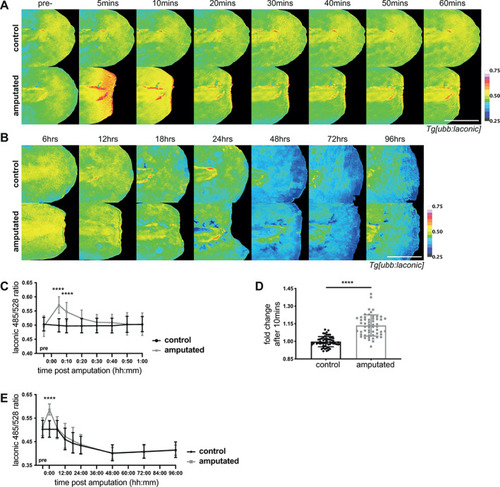FIGURE 3
- ID
- ZDB-FIG-230110-132
- Publication
- Scott et al., 2022 - Aerobic glycolysis is important for zebrafish larval wound closure and tail regeneration
- Other Figures
- All Figure Page
- Back to All Figure Page
|
Lactate levels in fin fold regeneration. A) Micrographs of representative |

